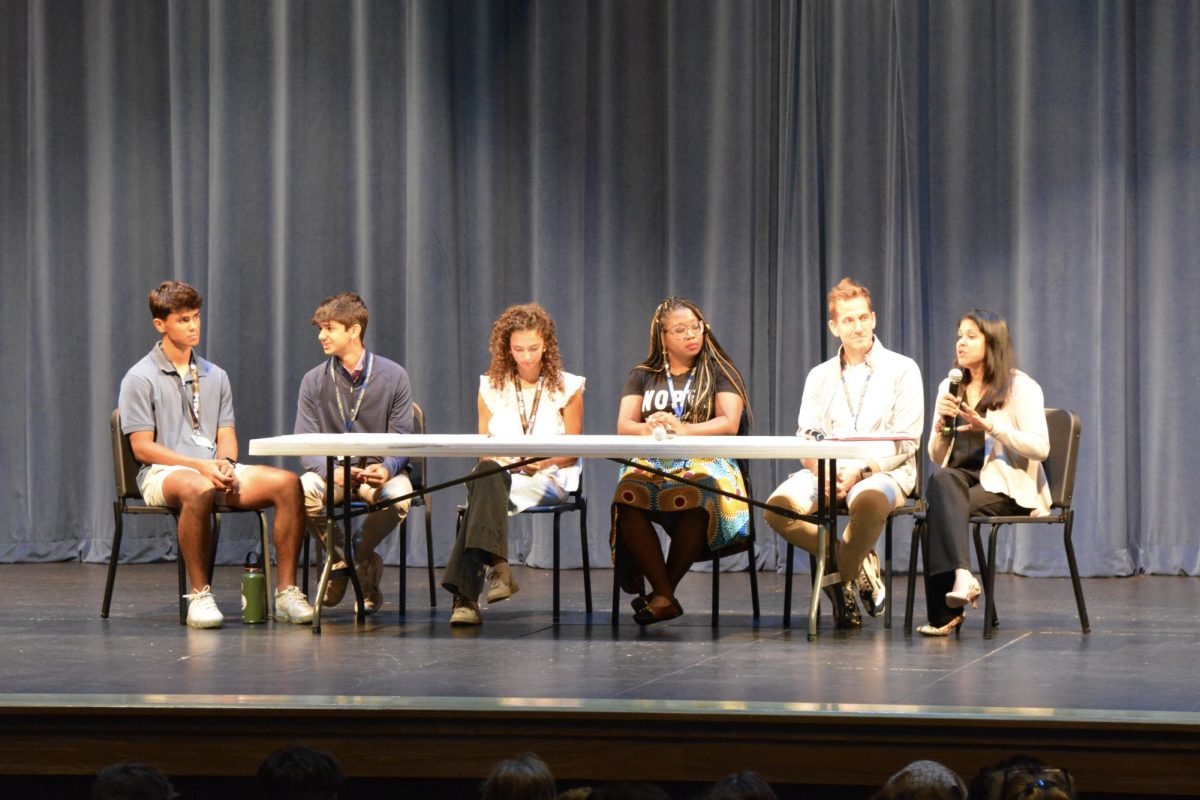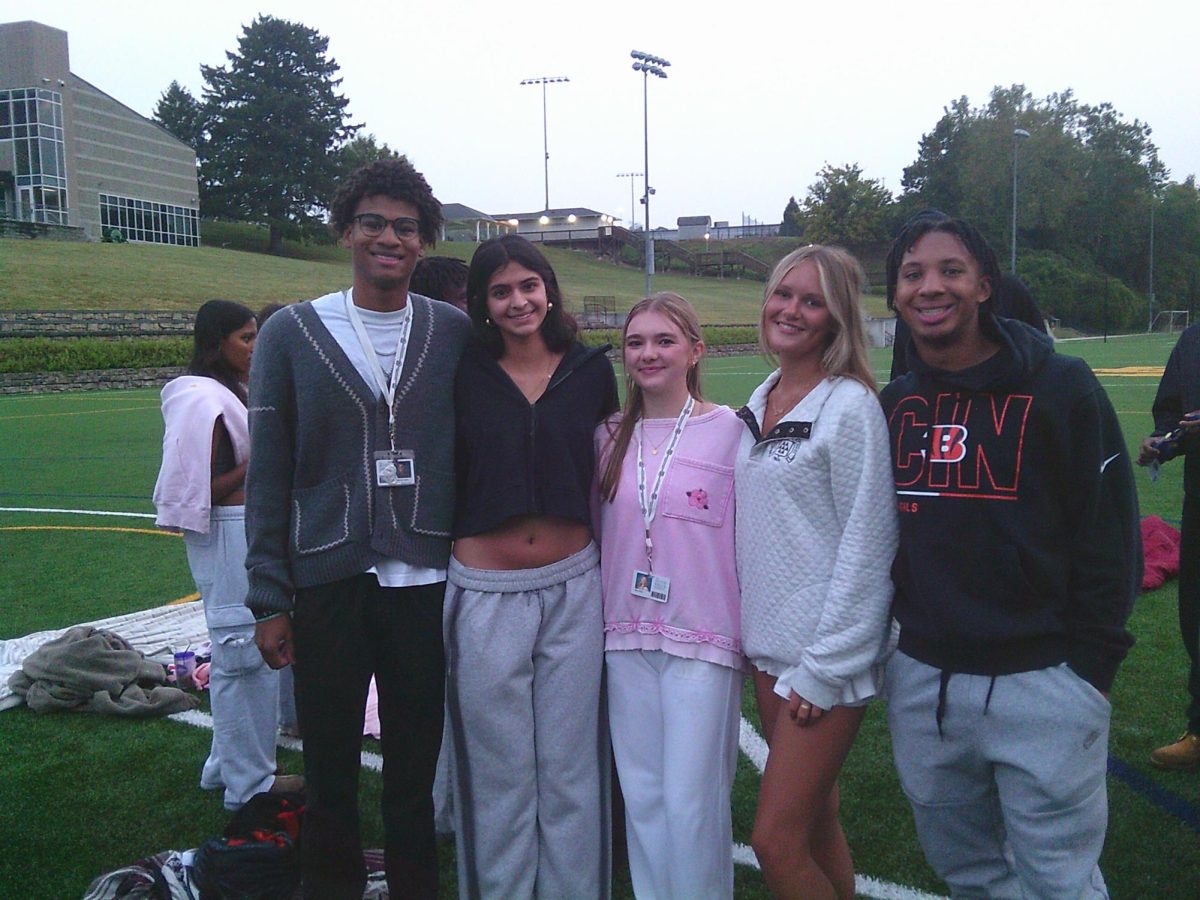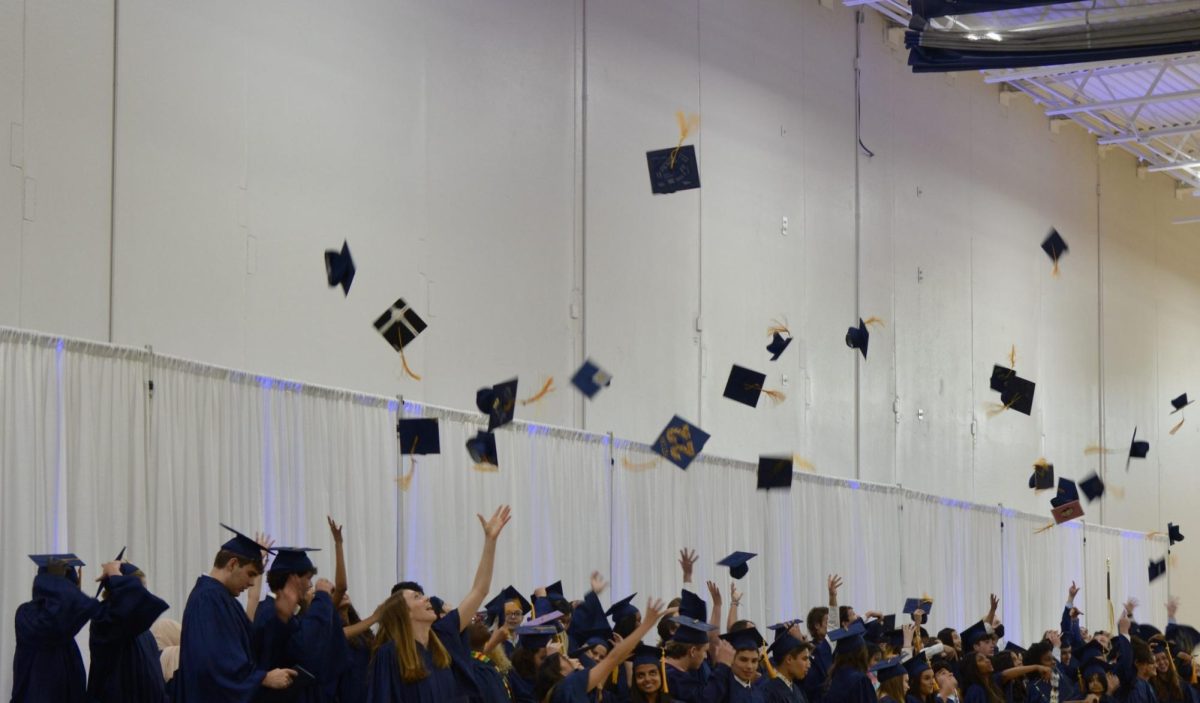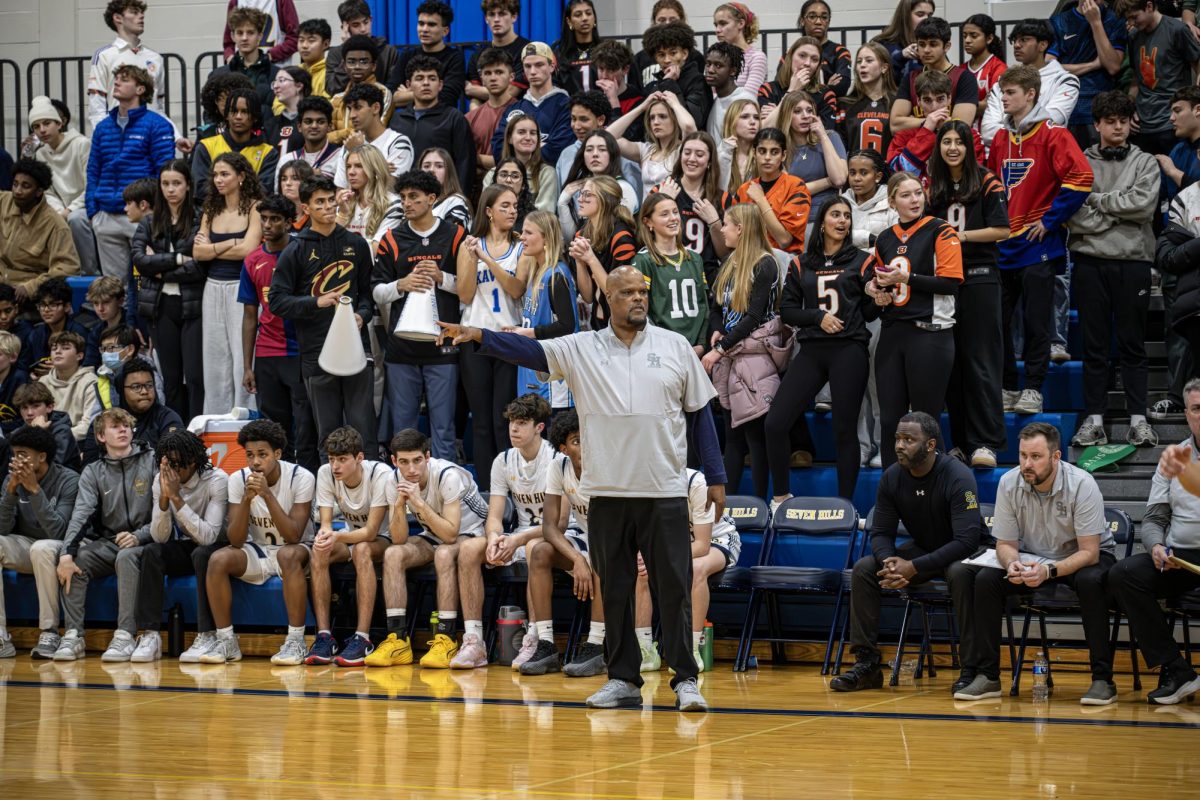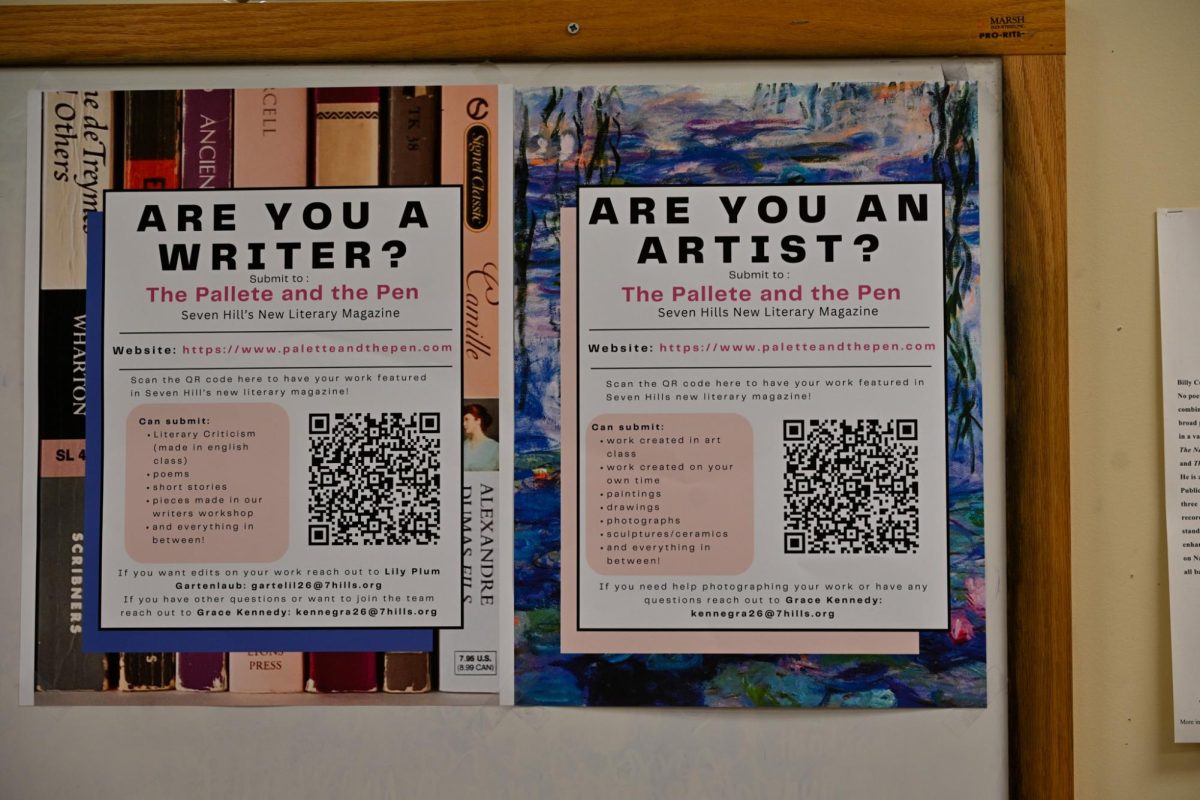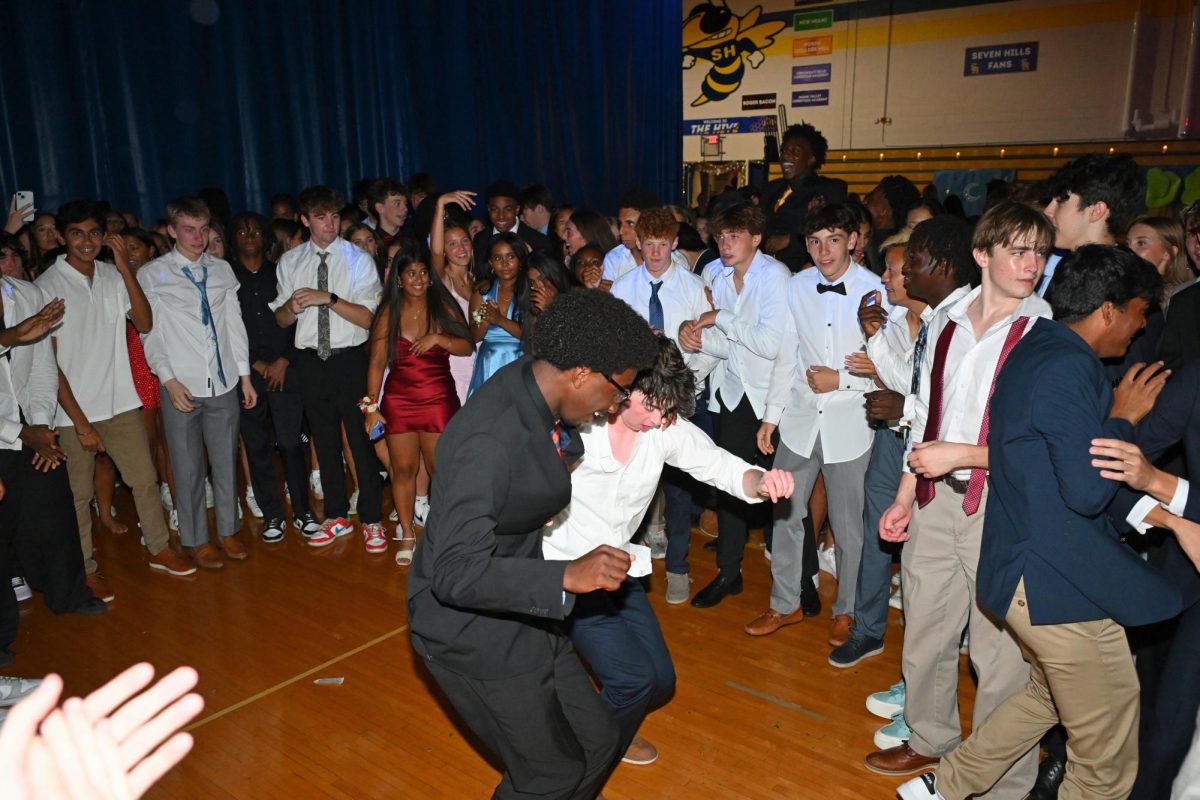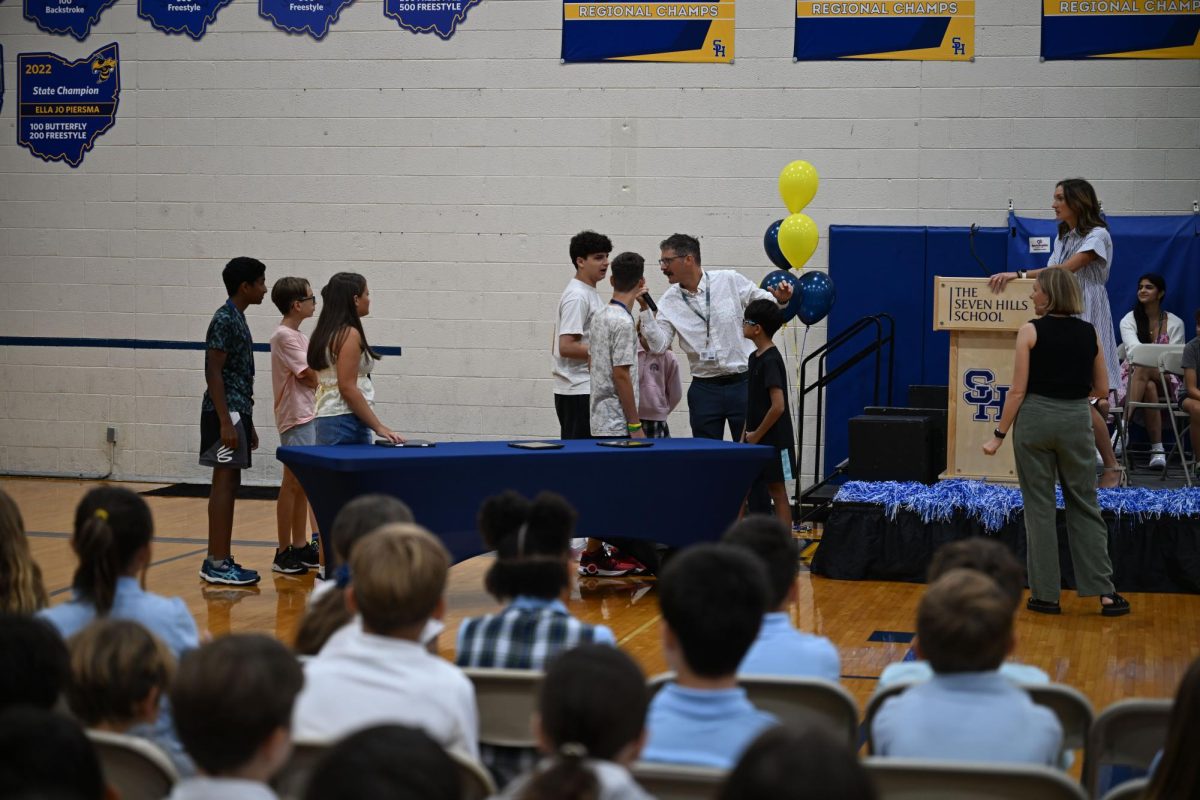Have you ever watched one of the productions performed by our upper school students? Do you know about the process the theater department goes through to be able to produce a successful play? On Oct.20, the theater department started their production of “Clue!” for the Seven Hills community.
Every year, the high school produces three plays for the school year. Each during the fall, winter, and spring seasons. While upfront, the school sees an excellent, put-together production, there is much hard work done behind the scenes by our theater community.
Before beginning the practices, the theater department must pick the plays and musicals for the school year. Marc Raia, the Director of Upper School Theater, explains the process of choosing which productions the school will present.
“I’ll sort of look at our seasons over the past three years and look at the material that we’ve done and the kinds of things that we haven’t done, so we’re mixing it up,” said Raia. The choice of which productions are picked also depends on the styles since the theater department tries to get as much variety as possible.
Once the productions for the school year are chosen, auditions are held. Each year, many students come to audition for plays or musicals with a particular role in mind. Sophomore Grace Guminey strives for positions that include various activities and even parts that may challenge her as an actor.
“I love getting parts where I can have a taste of everything- learning lines, lyrics, choreography, etc.,” said Guminey. Although more than one person might likely audition for the same role, the conflict is most often solved with one person being assigned to a different position, but for this fall play, enough students auditioned for there to be two cast lists. Because of this, two casts for the play will alternate during practices between the backstage and the main stage and the production dates.
“I’ve never done a show that has two completely different casts, but it has been really fun so far. I like that I can take inspiration from people in the other cast and use it in my own, or make sure that I don’t do something in order to make the performances very different,” Guminey said.
As practices begin, the actors and people involved in the theater department have to get into a routine to prepare themselves for the play. Time has to be well managed and kept on a schedule to produce a successful production.
“It’s just logistics. How many days do we have left, how many rehearsals do we have left, and what do we need to accomplish on each one of those days,” Raia said.
For the actors, each person uses different methods to do things, such as memorizing lines and getting into character. Some may practice using the help of other actors or even have another person read the lines for the other people. Freshman Maya Little uses various ways to help her memorize lines for the play.
“I would make recordings of myself saying other people’s lines and then say my line in my head so that I would give myself enough time to say my line, and then I would practice with myself,” Little said.
Although most conflicts on the theater department’s end are well managed, it is common for an actor to have the theater practice times interfere with another activity that they have committed to. “I have choir from 7:00 – 8:30 every day, and theater now ends at 6:00, so I don’t really have time for homework or dinner. And when it gets to tech week, I’m going to have to miss 20 minutes of drive time for either one of them,” Little said.
Conflicts are also commonly found between sports practice times and theater practice.. The issue would be handled differently depending on the activity and their commitment level to theater and their other training. Guminey was stuck between continuing as a goalie for her soccer team or participating in the play. “Last school year, I decided that the fall production of ‘Guys and Dolls’ was something that I really wanted to do, so I decided to quit soccer so I could put all my effort into my first high school show,” Guminey said.
Although the production is based on meticulous planning, it cannot be successful without a good relationship among the cast members. Having a good relationship with those performing is imperative to the show’s success.“It’s just like a sports team,” Guminey said, “you can have very talented players, but the team won’t be nearly as good if everyone doesn’t click.” Having a disconnect makes it harder to try new things in scenes or improvise if needed.
The production of “Clue” has gone wonderfully. The casts have been working well with each other, and everything is well prepared for the production dates. With so much background work and community building, the theater department and all involved deserve a huge round of applause for a job well done.

